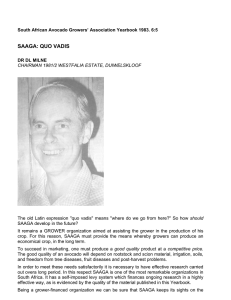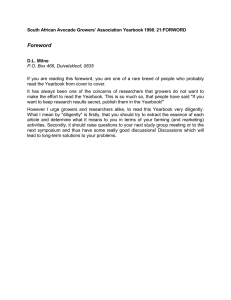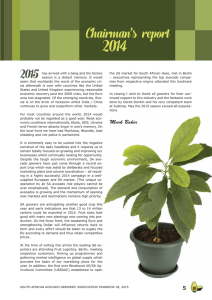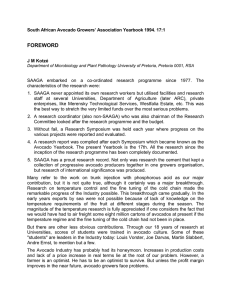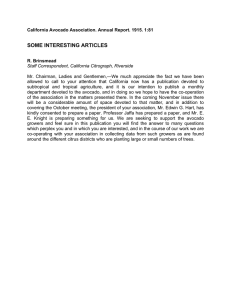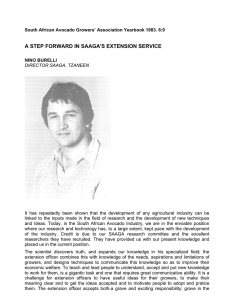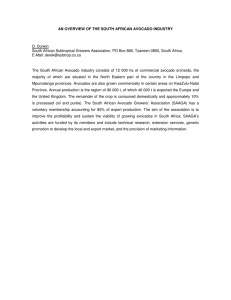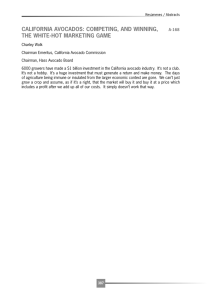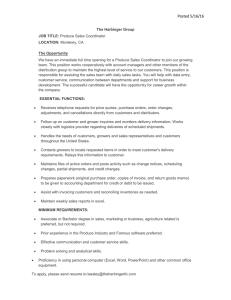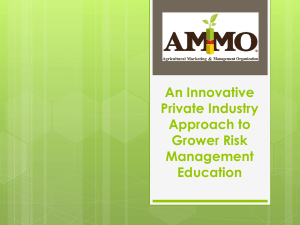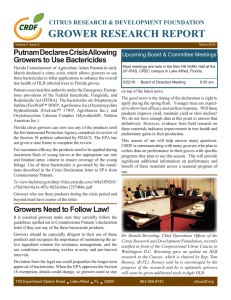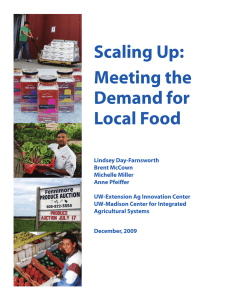Foreword
advertisement
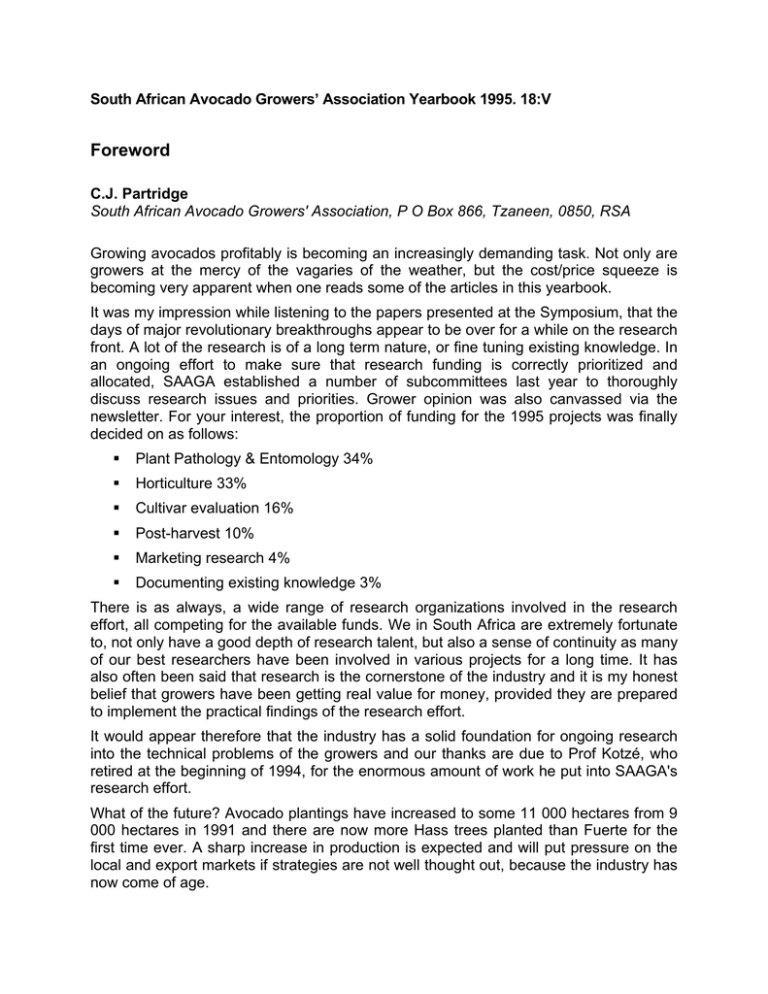
South African Avocado Growers’ Association Yearbook 1995. 18:V Foreword C.J. Partridge South African Avocado Growers' Association, P O Box 866, Tzaneen, 0850, RSA Growing avocados profitably is becoming an increasingly demanding task. Not only are growers at the mercy of the vagaries of the weather, but the cost/price squeeze is becoming very apparent when one reads some of the articles in this yearbook. It was my impression while listening to the papers presented at the Symposium, that the days of major revolutionary breakthroughs appear to be over for a while on the research front. A lot of the research is of a long term nature, or fine tuning existing knowledge. In an ongoing effort to make sure that research funding is correctly prioritized and allocated, SAAGA established a number of subcommittees last year to thoroughly discuss research issues and priorities. Grower opinion was also canvassed via the newsletter. For your interest, the proportion of funding for the 1995 projects was finally decided on as follows: Plant Pathology & Entomology 34% Horticulture 33% Cultivar evaluation 16% Post-harvest 10% Marketing research 4% Documenting existing knowledge 3% There is as always, a wide range of research organizations involved in the research effort, all competing for the available funds. We in South Africa are extremely fortunate to, not only have a good depth of research talent, but also a sense of continuity as many of our best researchers have been involved in various projects for a long time. It has also often been said that research is the cornerstone of the industry and it is my honest belief that growers have been getting real value for money, provided they are prepared to implement the practical findings of the research effort. It would appear therefore that the industry has a solid foundation for ongoing research into the technical problems of the growers and our thanks are due to Prof Kotzé, who retired at the beginning of 1994, for the enormous amount of work he put into SAAGA's research effort. What of the future? Avocado plantings have increased to some 11 000 hectares from 9 000 hectares in 1991 and there are now more Hass trees planted than Fuerte for the first time ever. A sharp increase in production is expected and will put pressure on the local and export markets if strategies are not well thought out, because the industry has now come of age. Promotions, marketing and marketing related matters will undoubtedly assume increasing importance in the years to come as will the absolute necessity of more cooperation between the many important role players operating locally and overseas. Cooperation implies communication and having been privileged to have been involved in most facets of the industry, it has been interesting to see the increasingly important role that communication has assumed. This yearbook is one of the communication tools we have and it is supplied to every grower member, as it is they who provide the funds for research. My thanks to members of all the research sub-committees, the researchers and SAAGA members — we hope you will find the information contained in this yearbook of value.
